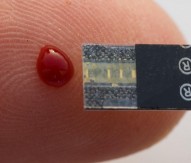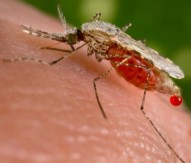
Study: Hereditary swellings caused by defective protein
A study part-funded by the European Research Council has helped scientists learn more about hereditary angioedema (HAE).
Oedema, or tissues becoming swollen due to fluid retention, is a common symptom in a number of pathologies such as allergies or kidney and heart diseases. The swelling is caused by blood vessels leaking fluid into the surrounding tissue. In HAE, the leakage, and hence the swelling, is primarily caused by the hormone bradykinin.
The researchers already knew that patients with HAE type III have a mutation in the blood protein factor XII, yet did not know why this would cause swellings. In the study, researchers discovered that a single sugar was missing in the mutated factor XII in HAE type III patients. The mutated factor XII was found to be overactive. This caused an excess of bradykinin production, resulting in vessel leakage and swelling.
One of the researchers behind the study, Dr Jenny Björkqvist of the Karolinska Institute, Sweden, said that HAE type III was only “discovered just recently” and that if treatments were to be developed “we must first understand the underlying mechanism”.
According to the Karolinska Institute, there are natural inhibitors in blood that normally prevent factor XII from becoming activated. These inhibitors can also bind to and inhibit the mutated factor XII, but this is not enough to completely stop the overactivation.
Adding his thoughts, Dr Thomas Renné, principal investigator of the study and also at Karolinska, said: “We realised that we had to find substances that could block factor XII more effectively. We have previously made an antibody that can inhibit factor XII, and shown that this antibody blocks factor XII driven blood clot formation. In the current study, we demonstrate that the same agent prevents oedema in mice.”
The researchers hope that the study results can be used to establish the first treatment for patients with HAE type III, with the potential for use in a broad array of other types of swelling diseases.
Full details of the study can be found in the Journal of Clinical Investigation.




